Small money has become so rare. Assistants to drivers of public transport are the first to be affected by the phenomenon.
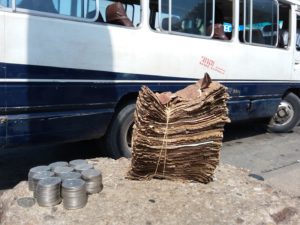
Bundles of worn-out BIF 100 banknotes and piles of coins of BIF 50
“Get in only if you have small money”, that’s a repeated warning -annoying to some- that bus passengers around Bujumbura city always hear from turnboys.
Ignoring the warning will more likely get you into quarrels with a turnboy when you hand him a BIF 1000 banknote or more to pay only the BIF 350 bus fees.
But why all the fuss? The assistants to drivers unanimously tell you “we get small change on a high price”.
What they mean is that small change has become so rare that it is now a source of a “flourishing business” as one practitioner of the “business” puts it.
At the main bus stop near the location of the former Bujumbura central market, you find displayed bundles of BIF 100 banknotes and piles of coins of BIF 50. This is the place where turnboys get their small change from.
The “changers” say they are there to help turnboys. But turnboys say they pay a lot to get the “help”.
“If you want small change for a BIF 1000 banknote, for example, the “changers” will give you back BIF 750 or 800”, says Eddy Habonimana, a turnboy.
He says he and his co-workers lose much because of the supplementary sum they give to get the small change. Another reason is that they are, from time to time, obliged to charge less to passengers when there is no small change to make transactions.
Désiré Nduwimana, another turnboy, regrets that in addition to losing money, he also gets into unnecessary angry arguments with his passengers. “It’s really irking to get into fights with passengers you have driven safely just because of the shortage of small money”, he says.
The turnboys are, however, not angry at the “changers”. “We understand them”, says Désiré, “they pay to get the small money, too”.
The “changers” work in broad daylight but are reticent when asked about their “business”.
They acknowledge they get profit from the “help” they offer assistants to drivers. “None can spend an entire day in the heat of the sun for nothing”, says one of the “changers”.
They say they pay and even travel upcountry to get the small money. In the city, they get the small money from hawkers, beggars and other sellers of cheap items.
Faustin Ndikumana, PARCEM Chairman, says the problem is due to “the lack of foreign currency” the government uses to get Burundian currency.
He, like the turnboys, asks the Central Bank of Burundi to find a solution to the problem because it disrupts economic activities.
Officials from the Central Bank were not ready to comment.
Burundi has suffered from a serious shortage of foreign currency reserves since its main donors, especially the EU, suspended their direct financial support to the Burundi government from March 2016.
This has resulted in ever-worsening living conditions of the population due to inflation of local currency and increase in prices of both locally-produced and exported goods.

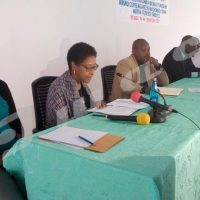
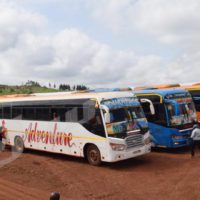
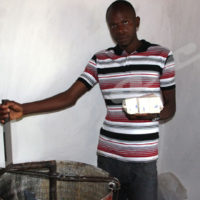

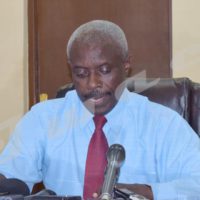













 IWACU Open Data
IWACU Open Data

